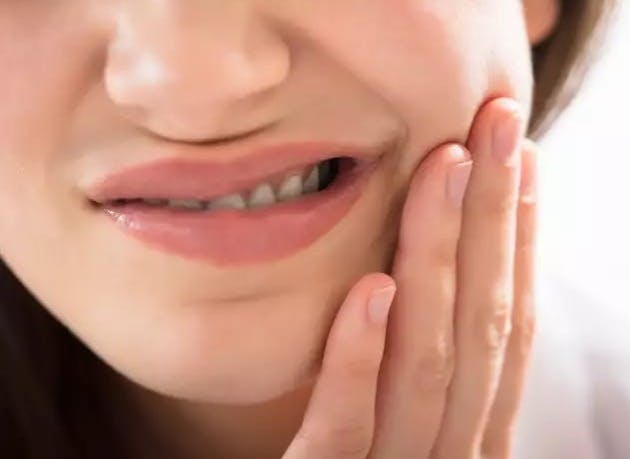How To Care For Sensitive Teeth
Home / Blog
Home / Blog
Many people across the U.S. suffer with sensitive teeth at some time or another, with pain whenever they encounter food or drink that is too hot or cold. In some cases, even a breath of cold wind can add pain to sensitive teeth.
Sensitive teeth are very common, though painful, and it can also signal that there are some serious underlying dental issues. Teeth are usually sensitive when the enamel degrades or becomes damaged. The nerves are exposed through tiny porous tubes being left open in the tooth, making the nerves vulnerable. The most popular treatment at the moment is the use of sensitive toothpastes and these often contain substances that block the open porous tubes in the teeth. The good news is that when you see your dentist, they can give you a whole list of things that you can do to prevent tooth sensitivity. Googling “dentist near me” should do it, so find the top dentist in Roswell, GA, and you can find a solution for your sensitive teeth.
Let’s take a look at some of the most common remedies for sensitive teeth, some of which you may not have known!
The first and most obvious solution to sensitive teeth is to see your dentist. They will be able to look at both your teeth and gums, checking them over to ensure that they are in the best possible health. Receding or diseased gums can lead to tooth sensitivity, as the tissue surrounding the tooth breaks down, moving away from the surface of the tooth. some times, this leads to parts of the teeth that have no enamel to become exposed. Nerves are then unprotected, and discomfort is the next step. Your dentist can confirm with you as to whether this is the problem, helping you to fix the issue.
Believe it or not, a mouthwash of salt and water can reduce your tooth sensitivity much faster. Salt water helps to balance out the pH levels inside the mouth, which creates a more alkaline environment which reduces bacterial growth. In the process, you’ll also reduce your plaque and enjoy a salt water rinse at the same time. Do this morning and night for the best results.
Bacteria growth can increase sensitivity in the teeth, and when this happens, coconut oil can help. Liquid coconut oil being swished around the teeth is called oil pulling and it’s been used for years as a way to improve oral health. Coconut oil slows down bacterial growth in the mouth, breaking down the plaque on your teeth and removing germs from the surface of the gums. You’ll also whiten your teeth over time!
You can use toothpastes as recommended by your dentist as a way to reduce the sensitivity of your teeth. It’s a great way to reduce the symptoms, as these toothpastes mostly contain ingredients that will fill any of the tiny holes in the enamel and dentin, reducing the exposure on your teeth.
For those with sensitive teeth, brushing can be painful. It can be helpful, then, to change out the toothbrush that you are using for one with softer bristles. Stiff bristles on your brush is hard on the enamel, which leads to more sensitivity over time, with gum recession getting worse over time. Brush gently, and you’ll notice a difference.
There is a chance that your dentist will recommend that you use a mouthguard at night. Many people have sensitive teeth because they are grinding their teeth at night, without even realizing that they are doing it. This is called bruxism, and if this is happening to you, then you can ask your dentist for help. They’ll take molds of your teeth and make mouth guards that you can wear in your sleep. This guard will prevent too much pressure hitting your teeth, reducing damage that is caused by night grinding.
Your dentist may recommend that you get a dental varnish or coating added to your teeth to control the level of sensitivity that you feel. Fluoride varnishes can help to prevent sensitivity to your teeth as it fills the tiny porous tubes that are open in the enamel of the tooth. Dentists will be able to apply this for you during an appointment.
The anti-inflammatory properties of clove oil are long known, and they can reduce inflammation, bacterial overgrowth and pain. Cloves also have a numbing effect on the teeth, reducing their sensitivity and acting as an analgesic.
If you are finding that eating ice lollies is a problem for your teeth, stop eating ice lollies. If you find that eating foods that are acidic is hurting your teeth, stop eating acidic food. It’s not rocket science, this one, and even if you love the particular food or drink, it’s not worth being in pain for. Food that is too hot or too cold can increase sensitivity in your teeth, and if they are a problem when you eat, you should consider reducing or removing these foods from your diet. Anything that makes you uncomfortable should be taken out of your diet until you get to the root of the problem.
Your breath won’t be so fresh, but garlic can contain everything that you need to improve your oral health. Allicin is a compound found in garlic that is pain relieving and antibacterial, and it’s an excellent natural alternative for sensitive teeth. You can either slice it and apply it directly to your teeth, or you can make it into a paste and apply it directly to your teeth that are most sensitive.
All of these remedies are a simple option to help your teeth to become stronger and less sensitive. There is no reason to live with the pain of sensitive teeth when an appointment with your dentist can make all the difference to your oral health.
